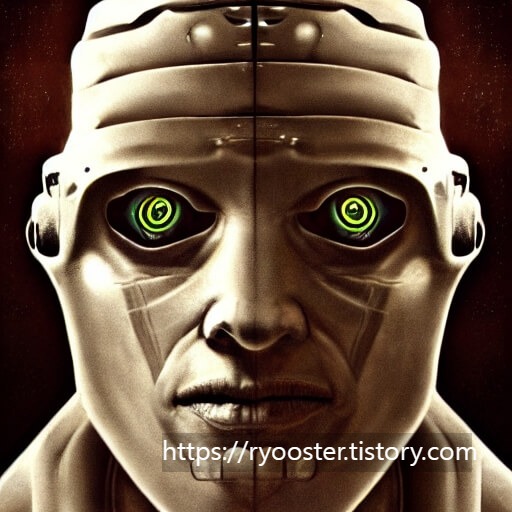《시계태엽 오렌지》 줄거리 요약

"A Clockwork Orange" is a dystopian novel written by Anthony Burgess, first published in 1962. The story is set in a future society that is dominated by youth violence, with gangs of young men committing acts of extreme brutality and vandalism. The book's protagonist and narrator is Alex, the leader of one such gang, who enjoys the "ultra-violence" and believes in free will and self-expression.
"시계태엽 오렌지"는 앤서니 버지스가 쓴 디스토피아 소설로 1962년에 처음 출간되었습니다. 이 소설의 배경은 청소년 폭력이 지배하는 미래 사회로, 젊은 남성 갱단이 극단적인 잔인성과 기물 파손 행위를 저지르는 이야기입니다. 이 책의 주인공이자 화자는 '초폭력'을 즐기고 자유 의지와 자기 표현을 믿는 갱단의 리더인 알렉스입니다.
The book is divided into three parts, each depicting a different stage in Alex's life. In Part One, Alex and his "droogs" (friends) engage in a series of violent crimes, including assaulting an elderly woman and raping a young girl. After a botched robbery, Alex is arrested and sentenced to 14 years in prison.
이 책은 세 부분으로 나뉘며, 각 부분은 알렉스의 인생에서 각기 다른 단계를 묘사합니다. 1부에서는 알렉스와 그의 '친구들'이 노인 여성을 폭행하고 어린 소녀를 강간하는 등 일련의 폭력적인 범죄에 연루됩니다. 강도 사건에 실패한 알렉스는 체포되어 14년 형을 선고받습니다.
In Part Two, Alex becomes a pawn in the government's attempts to reform violent criminals through a new treatment called the Ludovico Technique. The treatment involves conditioning him to feel physically ill whenever he thinks about violence or sex, essentially robbing him of his free will. After the treatment, Alex is released from prison and finds that he is no longer able to defend himself or express himself creatively, causing him to become vulnerable to the violence of others.
2부에서는 알렉스가 루도비코 기법이라는 새로운 치료법을 통해 폭력 범죄자를 개혁하려는 정부의 시도에 희생양이 됩니다. 이 치료법은 알렉스가 폭력이나 성에 대해 생각할 때마다 신체적 고통을 느끼도록 조절하는 것으로, 근본적으로 알렉스의 자유 의지를 박탈하는 것입니다. 치료 후 감옥에서 풀려난 알렉스는 더 이상 자신을 방어하거나 창의적으로 표현할 수 없게 되어 타인의 폭력에 취약해졌다는 사실을 알게 됩니다.
In Part Three, Alex is abandoned by his former friends and attacked by a former victim. He is taken in by an old man who recognizes him from his past as a violent criminal. The man's kindness and hospitality eventually cause Alex to question his former beliefs and desire for violence. In the end, Alex decides to end his life of violence and try to start anew.
3부에서는 알렉스는 전 친구들로부터 버림받고 전 피해자에게 공격을 받습니다. 그는 과거 폭력 범죄자였던 자신을 알아보는 한 노인의 보호를 받게 됩니다. 노인의 친절과 환대에 결국 알렉스는 자신의 과거 신념과 폭력에 대한 욕망에 의문을 품게 됩니다. 결국 알렉스는 폭력적인 삶을 끝내고 새로운 삶을 시작하기로 결심합니다.
The novel is famous for its use of a unique slang language called "Nadsat," which combines Russian, Cockney, and other dialects to create a distinctive voice for Alex and his gang. It is also known for its exploration of free will, the nature of evil, and the ethics of punishment and rehabilitation. The novel has been adapted into a successful film by Stanley Kubrick and has become a cultural touchstone for discussions of youth violence and social control.
이 소설은 러시아어, 콕니어 및 기타 방언을 결합하여 알렉스와 그의 갱단의 독특한 목소리를 만들어내는 "나삿"이라는 독특한 속어를 사용하는 것으로 유명합니다. 또한 자유 의지, 악의 본질, 처벌과 재활의 윤리를 탐구하는 것으로도 유명합니다. 이 소설은 스탠리 큐브릭에 의해 영화로 각색되어 성공을 거두었으며 청소년 폭력과 사회적 통제에 대한 논의를 위한 문화적 시금석이 되었습니다.
《시계태엽 오렌지》에 나오는 명언/글귀/문구
"Goodness is something chosen. When a man cannot choose he ceases to be a man." - This quote speaks to the importance of free will in defining our humanity and individuality.
"선은 선택된 것입니다. 인간이 선택할 수 없다면 그는 더 이상 인간이 아니게 됩니다." - 이 인용문은 우리의 인간성과 개성을 정의하는 데 있어 자유 의지가 얼마나 중요한지를 말해줍니다.
"Is it better for a man to have chosen evil than to have good imposed upon him?" - This quote challenges the idea that rehabilitation through force is truly ethical or effective.
"사람이 선을 강요받는 것보다 악을 선택하는 것이 더 낫습니까?" - 이 인용문은 강제를 통한 재활이 진정으로 윤리적이거나 효과적이라는 생각에 도전합니다.
"I was cured, all right." - This infamous quote is Alex's response to being "cured" of his violent tendencies through the Ludovico Technique, demonstrating the loss of his agency and identity.
"나는 나았다." - 이 악명 높은 인용문은 루도비코 기법을 통해 폭력적인 성향이 '치료'된 알렉스의 반응으로, 그의 주체성과 정체성을 상실했음을 보여줍니다.
"The important thing is moral choice. Evil has to exist along with good, in order that moral choice may operate." - This quote again emphasizes the importance of free will and the ability to make choices, even if they are not always good ones.
"중요한 것은 도덕적 선택입니다. 도덕적 선택이 작동하려면 선과 함께 악이 존재해야 합니다." - 이 인용문은 자유 의지의 중요성과 항상 좋은 선택이 아니더라도 선택할 수 있는 능력의 중요성을 다시 한 번 강조합니다.
"But what I do I do because I like to do." - This quote demonstrates Alex's personal philosophy of individualism and self-expression, which fuels his violent tendencies.
"하지만 내가 하는 일은 내가 좋아서 하는 것이다." - 이 인용문은 알렉스의 개인주의와 자기 표현에 대한 개인적 철학을 보여주며, 이는 그의 폭력적인 성향에 연료를 공급합니다.
"When a man cannot choose he ceases to be a man." - This quote is a repeated refrain in the novel, echoing the importance of free will in defining our humanity.
"남자가 선택할 수 없을 때 그는 더 이상 남자가 아니다." - 이 인용문은 소설에서 반복적으로 반복되며 인간성을 정의하는 데 있어 자유 의지의 중요성을 강조합니다.
"And all it was was that I was young. But will they be talking about me still when I am grown up?" - This quote shows Alex's youthful arrogance and his belief that his violent acts will be remembered and celebrated in the future.
"내가 어렸다는 것뿐이었다. 하지만 내가 어른이 되어서도 사람들은 여전히 나에 대해 이야기할까?" - 이 대사는 알렉스의 어린 시절 오만함과 자신의 폭력적인 행동이 훗날 기억되고 칭송받을 것이라는 믿음을 보여줍니다.


